
P.T. Anderson is less interested in structures and institutions than in the psychological and archetypal nature of his bigger-than-life, sometimes mad characters. And so his latest film, The Master, isn’t the docudrama about a Scientology-like cult that some people expected it to be.

Four years ago on the embargo-stricken island, Obama’s election fueled a wave of optimism for improved relations between the two countries, a development that some see as a necessary step to improving life on the island.

Intense tropical cyclones would presumably have formed in the absence of the current warming of the oceans by the greenhouse effect. Maybe Sandy would have been one of those. But the fact is that Sandy is not one of those.
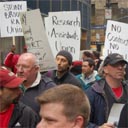
If graduate students like myself do not want to come into work one day to find ourselves replaced by video lectures delivered by “information curators,” we will have to learn to take collective action.

It is not just the economic climate in which our colleges and universities find themselves that determines what they charge and how they operate; it is their increasing corporatization.
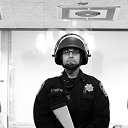
When Mitt Romney urges Americans to “get as much education as they can afford,” or when university administrators call the police as their first response to student protest, it’s Ronald Reagan’s playbook they’re working from.
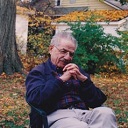
His commentary was sharp, as much of Dissent is, but I always imagined him writing with a smile on his face, while many of our other writers write with grim determination.

My own education in American social policy began intensively in 1980. That year, three events cemented my interest in American poverty and the U.S. public response to it.

There is no such thing as a spontaneous strike, protest, or any other kind of social irruption. Spontaneity is just another word for ignorance on the part of those in power who are the object of subaltern scorn and protest.

Why has the price tag of an American college degree skyrocketed (500 percent in the public sector since 1985) in recent decades?
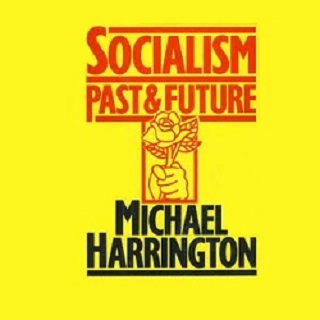
We have reached the point where the satisfaction of material human needs no longer requires that every adult on the planet work a forty-hour week. The jobs are not coming back.

News organizations must be held accountable for the impact their use of “illegal” has not only on individual readers, but also on communities and on any chance of future congressional action.
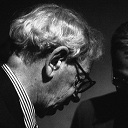
While Hobsbawm will be remembered as a historian of singular gifts, his writings already seem less a harbinger of the shape of things to come than sterling examples of an older kind of scholarship at its best.
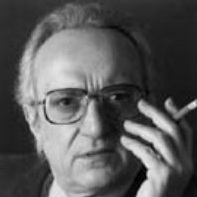
Eugene D. Genovese, one of the foremost left-wing scholars of his time, has died. A teenage member of the Communist Party kicked out for “having zigged when I was supposed to zag,” he gained national notoriety in 1965 for welcoming “the impending Viet Cong victory” at a Rutgers teach-in.

By echoing a creed that failed the nation at the end of the nineteenth century, the conservatives who rule the GOP make it almost impossible to have a serious debate about how to solve our problems in the early twenty-first.




















